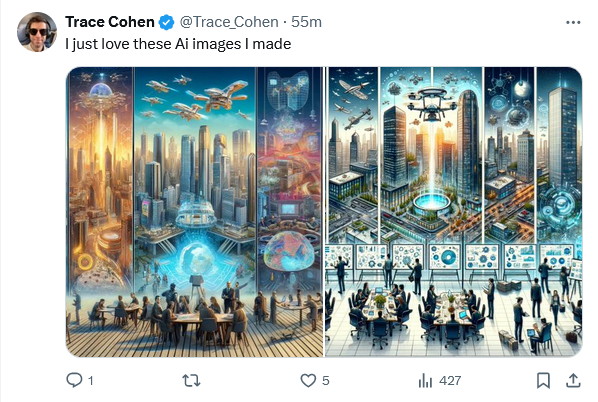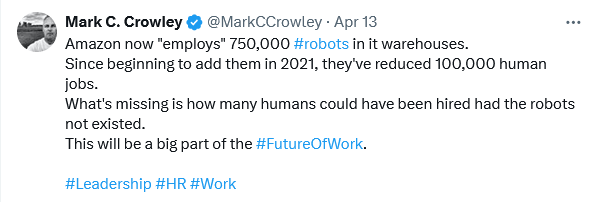- Career Brew
- Posts
- 5 Technologies That Will Impact the Future of Work
5 Technologies That Will Impact the Future of Work
Technologies
5 Technologies That Will Impact the Future of Work
The future of work is being shaped by the rapid advancement of technology.
In the coming years, we can expect to see a number of technological breakthroughs that will have a significant impact on how we work.
From artificial intelligence to virtual reality, these technologies are set to revolutionize the way we work and live.
In this article, we will discuss five technologies that are already having an impact on the future of work and how they might shape our lives in the years to come.
Artificial Intelligence (AI) and Machine Learning (ML): The emergence of AI and machine learning technologies is set to revolutionize the way we work in the future.
AI and machine learning will enable us to automate mundane tasks, improve decision-making, and optimize processes. It will also help us in understanding customer behavior better, allowing us to deliver more personalized services.
The impact of these technologies on the future of work is likely to be profound.
We can expect a shift from manual labor-intensive jobs towards more automated roles that require higher cognitive skills.
As a result, workers will need to develop new skill sets in order to stay competitive in this changing landscape.

Robotics and Automation: With the emergence of robotics and automation, the future of work is poised to undergo a massive transformation.
Automation and robotics are being used in many industries to reduce costs, increase productivity and efficiency, and improve safety. As these technologies become more advanced, they will have an even greater impact on the way people work.
Robotics and automation will not only change how people do their jobs but also create new job opportunities. Companies will be able to use robotics and automation to automate mundane tasks that were previously done manually.
This could free up employees’ time for more creative tasks that require human input. Additionally, robots can be used in dangerous or hazardous environments where it would be too risky for humans to enter.
Overall, robotics and automation are set to revolutionize the future of work by creating new job opportunities while also improving efficiency in existing ones.

Virtual and Augmented Reality (VR/AR): Virtual reality (VR) and augmented reality (AR) are two of the most promising technologies that will shape the future of work.
With VR, people can experience a 3D environment and interact with objects in it. AR, on the other hand, allows users to interact with their environment in real-time and is increasingly being used in industrial settings.
The use of VR and AR will also enable us to collaborate more effectively with remote teams, as well as gain insights into data that would otherwise be difficult or impossible to obtain.
As these technologies become more widespread, they will have a huge impact on how we do our jobs, from improving efficiency to creating entirely new roles.
5G Networking and Edge Computing: The introduction of 5G network and edge computing is set to revolutionize the way we work.
It will enable us to access data and applications faster, with less latency. This will open up a whole range of possibilities for businesses, from increased automation and robotics to better customer service.
Moreover, edge computing will allow us to process data closer to the source, drastically reducing response time and improving efficiency. This could lead to more efficient workflows that are powered by AI-driven insights.
In short, 5G network and edge computing are poised to change the future of work significantly by providing faster access to data and applications while allowing us to process data closer to its source.
With these technologies in place, businesses can look forward to greater automation, improved customer service, and enhanced efficiency in their operations.
Cloud Computing and Cybersecurity: Cloud computing has become a fundamental requirement for most organizations.
With this in mind, cloud computing is massively on the rise in the current day and age.
Businesses can easily concentrate on achieving their objectives, with performance at the forefront, thanks to cloud computing.
The degree of company performance increases when a five-pronged cloud computing phenomena that makes use of flexibility, agility, security, mobility, and scalability interacts with existing procedures.
The goal is to assist organizations in obtaining the computational power they require, utilizing it as they see fit, and moving on.

If you found value in this article, we appreciate you sharing tools and tips to someone who could really use it today.
The best community looking to level up.
Check us out on workschool.co.